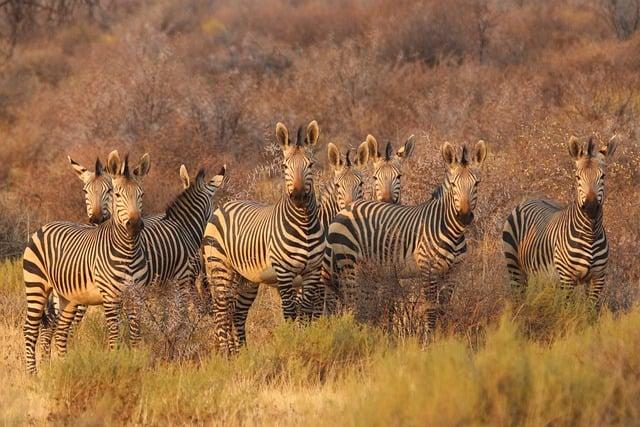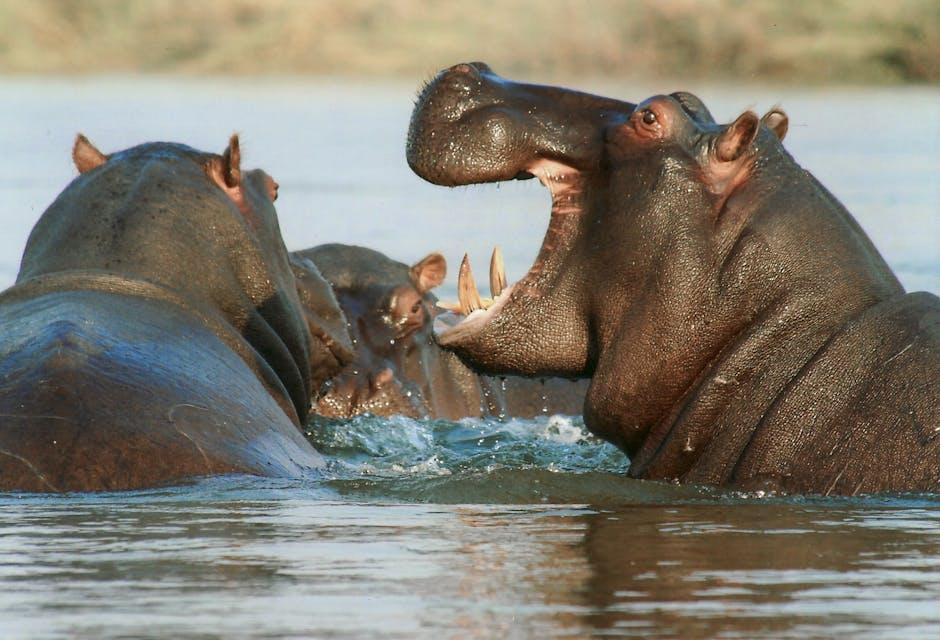In the heart of Africa‘s breathtaking landscapes, where the sun casts golden hues over sprawling savannas and dense jungles, lies a complex intersection of tourism, wildlife, and ethics. Every year, millions of travelers are drawn to this majestic continent, eager to witness its iconic wildlife up close—from the stately elephants wandering the plains to the agile cheetahs darting through the grasslands. Yet, behind the allure of these intimate animal encounters, a shadowy dilemma unfolds. Reports of unethical practices, ranging from exploitative wildlife sanctuaries to distressing conditions in captivity, have sparked a growing debate among tourists and conservationists alike. Should travelers, armed with the power of choice and a burgeoning awareness of their impact, take a stand by boycotting these experiences? Or could such actions inadvertently harm the very communities and conservation efforts they aim to support? This article delves into the multifaceted issue, exploring the delicate balance between tourism and ethical responsibility in Africa’s wildlife encounters.
The Ethical Dilemma of Wildlife Tourism
In the vibrant tapestry of Africa’s diverse landscapes, wildlife tourism stands as both a beacon of hope and a cause for concern. The allure of close encounters with majestic creatures such as elephants, lions, and gorillas draws millions of tourists each year. However, the ethical implications of these interactions are increasingly scrutinized. Animal welfare and environmental impact are at the heart of this debate, as some wildlife attractions prioritize profit over the well-being of the animals and their habitats. This has led to a growing call for tourists to consider the ethical dimensions of their travel choices.
- Exploitation Concerns: Many wildlife tourism venues operate under the guise of conservation, yet exploit animals for entertainment. These include activities like elephant rides, lion cub petting, and performances that often involve inhumane training methods.
- Habitat Disruption: Increased human presence can disrupt natural habitats, leading to stress and behavioral changes in wildlife. This disruption can have long-term consequences on local ecosystems.
- Conservation Opportunities: Ethical wildlife tourism, on the other hand, can provide much-needed funding for conservation efforts and offer educational experiences that foster a deeper appreciation for nature.
Ultimately, the decision to boycott or support specific wildlife encounters in Africa requires careful consideration of these factors. By choosing ethically responsible options, tourists can contribute to a more sustainable and compassionate form of wildlife tourism.

Understanding the Impact on Local Economies and Communities
When considering the ethical implications of animal encounters, it is essential to also evaluate their effects on local economies and communities. In many African regions, wildlife tourism serves as a crucial economic pillar. Tourism dollars can contribute significantly to community development, providing funding for education, healthcare, and infrastructure. Moreover, it can generate employment opportunities in areas with limited economic alternatives. However, the nature of these jobs and the distribution of tourism revenue often spark debates about fairness and sustainability.
- Economic dependency: Many communities rely heavily on tourism, which can create vulnerabilities if tourist numbers drop due to boycotts.
- Cultural preservation: Ethical tourism can foster pride and help preserve traditional practices by showcasing them to visitors.
- Conservation efforts: Revenue from ethical wildlife encounters can support conservation initiatives, protecting ecosystems and biodiversity.
While ethical considerations are paramount, understanding the broader socio-economic context is vital. Communities must be empowered to develop sustainable tourism models that protect wildlife while ensuring equitable benefits for local populations.

Navigating the Complexities of Conservation and Tourism
Engaging in wildlife tourism can be an ethical minefield, as the allure of close encounters with majestic creatures often masks the harsh realities behind the scenes. In Africa, where wildlife tourism is a major economic driver, ethical considerations must be at the forefront of every traveler’s mind. The decision to boycott certain animal encounters requires careful thought, as the implications extend beyond the immediate welfare of the animals. Here are some points to consider:
- Impact on Local Economies: Many communities rely heavily on tourism for their livelihood. A sudden drop in visitors can lead to economic hardship, potentially affecting conservation efforts.
- Animal Welfare: Evaluate whether the encounter promotes the well-being of animals. Activities that involve unnatural behavior or living conditions should raise red flags.
- Conservation Contributions: Some tourism activities fund conservation projects. Determine if your visit supports initiatives that genuinely benefit wildlife and habitats.
- Educating Yourself: Research and choose operators who are transparent about their practices and have received recognition for ethical standards.
Ultimately, tourists have the power to influence positive change. By supporting ethical practices and educating others, they can contribute to a future where conservation and tourism coexist harmoniously.

Making Informed Choices: Alternatives to Harmful Animal Encounters
Choosing ethical alternatives to harmful animal encounters can significantly enrich your travel experience while supporting sustainable tourism. Rather than participating in activities that exploit wildlife, tourists can explore a variety of humane options that promote conservation and education. Consider visiting wildlife sanctuaries that prioritize rehabilitation and release programs, where animals are cared for in environments that mimic their natural habitats. These sanctuaries often offer guided tours led by knowledgeable staff who can provide insights into the behavior and ecology of the animals, fostering a deeper appreciation for wildlife.
- Wildlife Photography Tours: Join a guided photography safari where the focus is on capturing the beauty of animals in their natural environment without disturbance.
- Community-Based Ecotourism: Engage with local communities that offer ecotourism experiences, supporting both cultural heritage and wildlife conservation efforts.
- Educational Workshops and Talks: Attend workshops that educate tourists about the importance of wildlife conservation and the impact of unethical practices.
By opting for these ethical alternatives, tourists can contribute to the preservation of Africa’s rich biodiversity and ensure that future generations can enjoy these magnificent creatures in the wild. These choices not only align with conservation goals but also offer a more authentic and fulfilling travel experience.
Insights and Conclusions
As the sun sets over the vast African savannah, casting a warm, golden glow across the land, we are reminded of the delicate balance between nature and humanity. The question of whether tourists should boycott unethical animal encounters in Africa is not one with a simple answer. It requires a nuanced understanding of the intricate tapestry of culture, economy, and ethics that intertwine in this majestic continent.
In our journey through this topic, we’ve explored the motivations and consequences of such encounters, the voices of those who advocate for change, and the perspectives of communities that rely on tourism for their livelihoods. Like the many paths that wind through the African landscape, the choice ultimately rests with each traveler. It is a decision that asks us to weigh our desire for unique experiences against our responsibility to the creatures that inhabit these lands.
As we ponder our next adventure, let us carry with us the knowledge that our actions, however small, ripple across the world. Whether we choose to engage or abstain, let our decisions be guided by respect, empathy, and a commitment to preserving the wild wonders of Africa for generations to come. The call of the wild is a powerful one, but so too is the call for ethical and sustainable travel. In answering it, we not only shape our own experiences but also contribute to the legacy of the lands we explore.


































